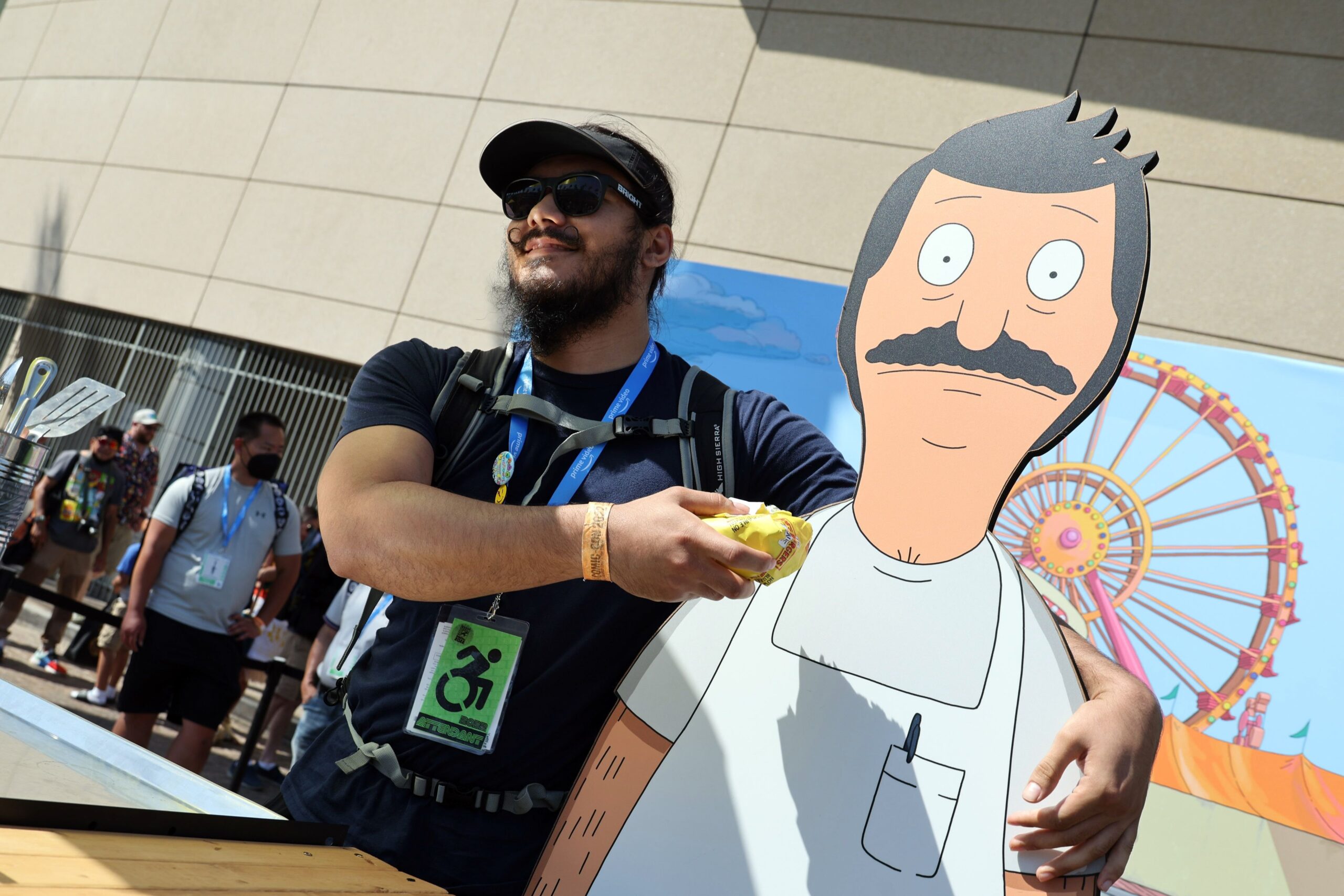
By: Eric Charbonneau/Shutterstock
On its face, Bob’s Burgers is a silly animated family sitcom that loves to indulge in gross-out humor and musical numbers—often at the same time.
But if you look a little deeper, you’ll find one of the most political shows on network television, as well as a very detailed analysis of the structural problems in our society. In short, Bob’s Burgers is possibly the best critique of late capitalism in popular culture.
Bob Belcher’s character arc is the most obvious example. Owner and operator of the titular restaurant, he is presented as a talented cook with a passion for his food. Bob takes care to buy the best ingredients and combines them in innovative ways that professional chefs respect, and he sells his food at modest prices without the gimmicks and schemes of his closest competitor, Jimmy Pesto — a man without culinary passion, motivated purely by greed.
As a result, Bob and his wife Linda are continually struggling to make ends meet, while Jimmy Pesto rubs his unearned success in Bob’s face. Any suggestion that the profit motive could possibly produce a meritocracy is pretty much out the window.
The corrosive influence of greed is further seen in Edith and Harold Cranwinkle, who own the craft store near Bob’s restaurant. They are a miserable old couple with narrow, classist views on art, working well past the age of retirement. They entertain no sense of fellowship with their neighbors, treating life as a zero-sum competition. Rather than finding a shared benefit in working together with the community, they take every opportunity to price gouge Bob, Linda, and their children whenever their misadventures leave them in desperate need of craft materials.
Meanwhile, these constant misadventures showcase the value of intrinsic motivation. The family achieves so much through pure passion, bonding over absurd creative projects that never manage to produce a material reward. What other show could feature a Thanksgiving musical that culminates in an explosion of turkey giblets but resolves in an inspiring outcome?
Contrast that with the school’s effort to teach the children how to participate in capitalism in the “Tweentrepreneurs” program. Starting out with a simple, charming product in the Woodchuck, their project quickly devolves into cost-cutting, exploitation of labor, and a lazy management team pushing out an uninspired follow-up called Woodchuck 2. Ultimately, the kids recoup their losses by simply operating as middlemen, rebranding googly eyes as a new product — Could-Chucks.
Bob’s Burgers – Quirky Turkey Montageyoutu.be
All this flurry of competition over petty sums takes place in the town of Bog Harbor, a Springfield-esque anywhere (as long as “anywhere” is the northern Atlantic coast of the US) with its own Mr. Burns in the form of Mr. Calvin Fischoeder. Calvin and his brother, Felix, inherited ownership of just about all the property in Bog Harbor, and they feel entitled by that privilege to constantly interfere in the lives of the working class residents.
At Halloween, Mr. Fischoeder treats other people’s jack-o-lanterns (as well as bikes) as personal donations, which he uses to build a massive, for-profit pumpkin display. He constantly uses his leverage over Bob (who is always late on rent) to coerce him into uncomfortable acts of subservience.
And when Mr. Fischoeder raises the rent on all the tenants, Bob tries to organize a rent strike, but Mr. Fischoeder undermines this attempt at communal action by pitting his tenants against each other in a water balloon fight for the singular prize of half-price rent.
Settling A Rent Strike With A Water Balloon Fight | Season 5 Ep. 21 | BOB’S BURGERSyoutu.be
Some of the Fischoeder brothers’ behavior is plainly criminal — as when Felix ties Bob and Calvin to the underside of the pier at low-tide, trying to drown them — yet they never face justice. Perhaps because the Bog Harbor police force, as embodied by Sergeant Bosco — who once admitted to hunting humans for sport — is corrupt, lazy, barely competent, and operates in service of Capital, as when they shoot recklessly into a bank in the midst of an otherwise calm hostage situation.
Meanwhile, the criminal element is regularly revealed to be composed of kind, thoughtful people who don’t fit into any more acceptable role. Mickey, the bank robber, becomes a longtime friend of the Belchers, and “The One-Eyed Snakes” are a biker gang who help the Belcher children build a go-cart from stolen parts so they can compete with the wealthy kids from Kingshead Island.
An episode from season three titled “O.T. the Outside Toilet” puts as fine a point on this critique as any. While Gene forms an unlikely friendship with an absurd luxury toilet—worth $14,000—Bob borrows an expensive suit that was left at the funeral home next door, and his whole life is transformed. He wears the suit to court, where the judge views Bob as his equal and dismisses his parking violation. A child tells Bob that he “look[s] important” and tries to set him up with his mother. At a restaurant, Bob is given a table after Linda is told there are none, and other patrons send drinks to their table for Bob.
We don’t even need to address the fact that Sam Seder provides the voice of Bob’s romantic rival, because the message is clear—the only thing separating Bob’s constant struggle from a life of special treatment is the superficial suggestion of money and class. The wealthy will be rewarded with more wealth, while the workers will strive in vain. In short, capitalism is a broken system, and Bob’s Burgers wants you to know it.













